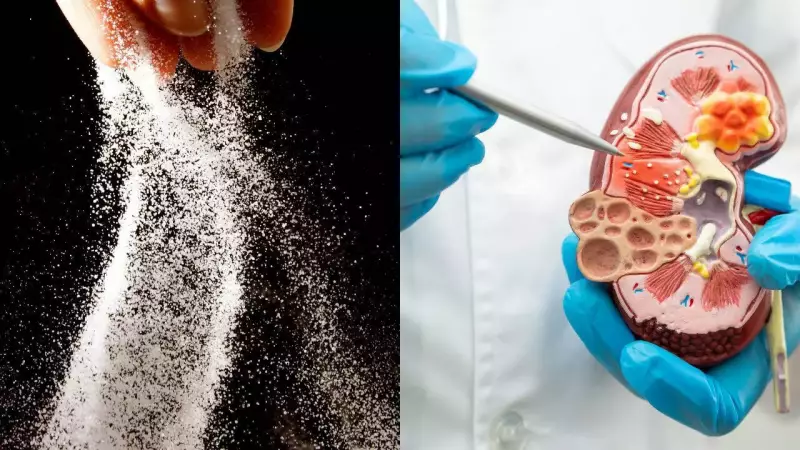
That seemingly harmless salt shaker sitting on your kitchen counter could be your kidneys' worst enemy, according to leading health experts. Many Indian households are unknowingly putting their renal health at risk through excessive salt consumption in daily cooking.
The Silent Kidney Killer in Your Kitchen
Dr. Prakash K, Senior Consultant Nephrologist, reveals that excessive salt intake is one of the primary culprits behind rising kidney disease cases in India. "Most people don't realize that their daily salt habit is creating a slow-burning health crisis," he explains.
When you consume too much sodium, your kidneys struggle to eliminate the excess. This puts tremendous pressure on these vital organs, potentially leading to long-term damage that often goes unnoticed until it's too late.
How Excess Salt Wreaks Havoc on Your Kidneys
The damage occurs through multiple pathways:
- Blood Pressure Spikes: High sodium levels cause water retention, increasing blood volume and pressure
- Kidney Strain: Your kidneys work overtime to filter out excess sodium
- Protein Leakage: Damaged kidney filters allow protein to escape into urine
- Gradual Function Loss: Sustained high pressure damages delicate kidney tissues
7 Simple Changes to Protect Your Kidney Health
- Measure Your Salt: Use measuring spoons instead of freehand sprinkling
- Embrace Herbs: Replace salt with fresh herbs, lemon juice, and spices
- Read Labels: Check sodium content in packaged foods and sauces
- Rinse Canned Foods: Always rinse canned vegetables and beans before use
- Cook Smart: Add salt at the end of cooking to use less
- Stay Hydrated: Drink adequate water to help kidneys flush toxins
- Regular Check-ups: Monitor blood pressure and kidney function annually
Early Warning Signs You Should Never Ignore
Kidney damage often progresses silently, but these red flags warrant immediate medical attention:
- Persistent swelling in hands, feet, or around eyes
- Unexplained fatigue and weakness
- Changes in urine frequency, color, or foaminess
- High blood pressure that's difficult to control
- Loss of appetite and metallic taste in mouth
The Indian Kitchen Revolution
Traditional Indian cooking often relies heavily on salt for flavor. However, experts suggest rediscovering the natural tastes of ingredients. "When you reduce salt gradually, your taste buds adapt within 2-3 weeks," assures Dr. Prakash. "You'll start appreciating the true flavors of food."
Making these simple adjustments to your daily cooking routine could be the difference between healthy kidney function and irreversible damage. Your kidneys filter approximately 200 liters of blood daily - they deserve your conscious protection.
Start your kidney-healthy journey today by taking that first step: put away the salt shaker and let natural flavors take center stage in your cooking.





